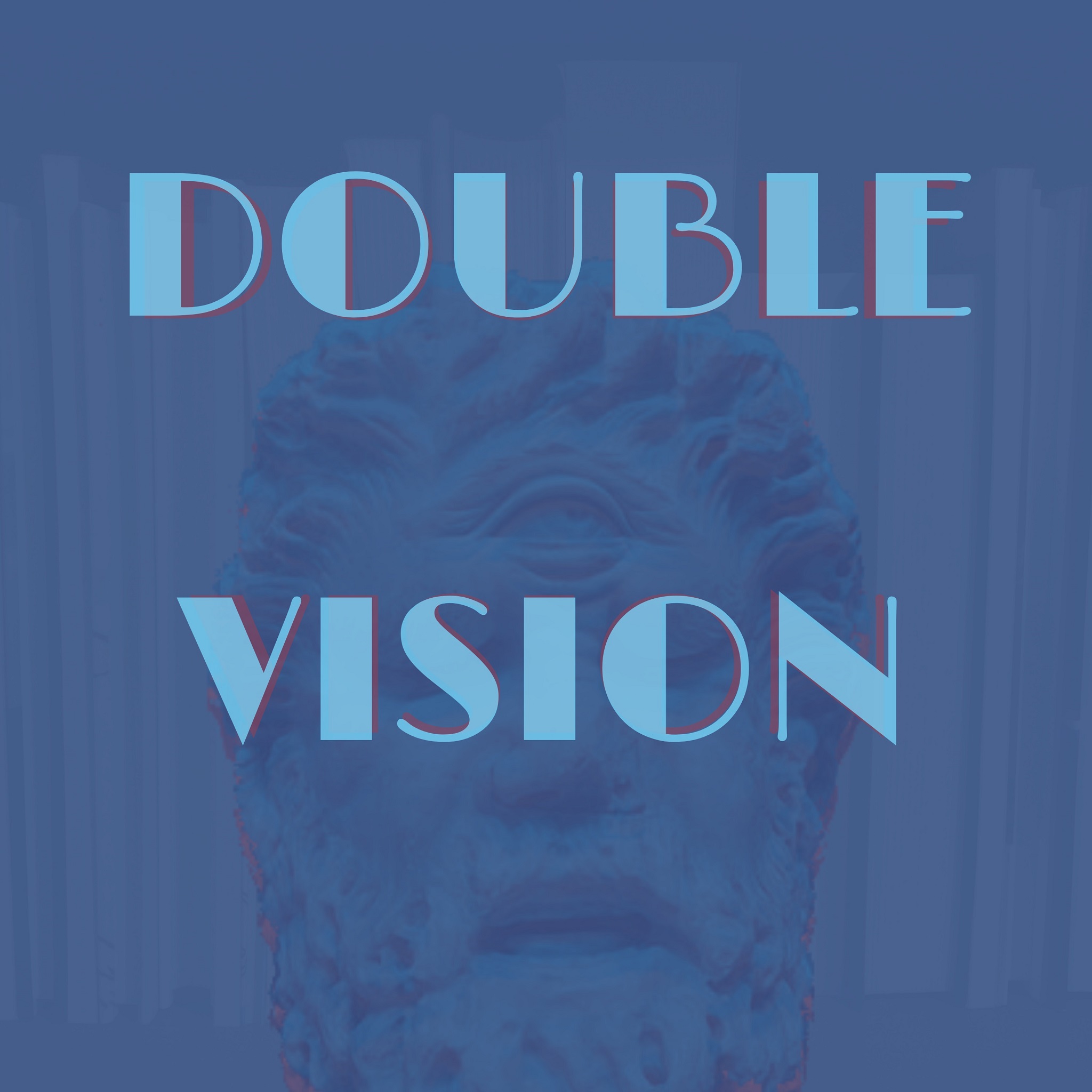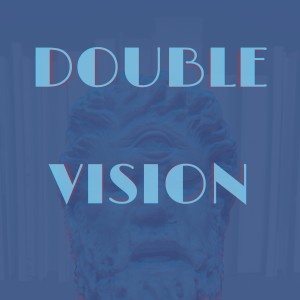
2.1K
Downloads
17
Episodes
Double Vision explores moments of synchronicity between closely released literature and film pairings. Hosted by Timothy Wilcox, Ph.D., and featuring frequent guests, each week we will explore two visions – one from each genre – and discuss moments of multiple discovery and creative distinction. Intro and outro music by York Morgan (https://yorkmorgan.bandcamp.com).
Episodes

Thursday Jan 07, 2021
Killing Machines at the End of the Cold War ft. Emmet Penney
Thursday Jan 07, 2021
Thursday Jan 07, 2021
Right before the Cold Wars ends in December of 1991, Bret Easton Ellis releases American Psycho in March and James Cameron releases Terminator 2 in July. One is about an inhuman killing machine, and the other is about a cyborg who leans the value of human life. One a vision of the consumer end of late 20th century technology, the other military, depicted respectively as pathetic void and maximally cool, these two works give us insight into a key historical moment. Emmet Penney, co-host of ex.haust, joins host Timothy Wilcox to determine which vision has the better business card.

Thursday Dec 31, 2020
Cultural Engine Failure ft. Grant Dever
Thursday Dec 31, 2020
Thursday Dec 31, 2020
September 11, 2001, Life of Pi comes out, then a few weeks later, Donnie Darko releases in theaters, a box office failure due its timing and central plane crash imagery. In these two narratives, a young man struggles to survive within a harsh world, while grappling with an animalistic nature. Grant Dever joins host Timothy Wilcox to recover this cultural moment which is about to be subsumed within a new paradigm.

Thursday Dec 24, 2020
A Sketch of Christmas
Thursday Dec 24, 2020
Thursday Dec 24, 2020
A short Christmas special: December 1983, A Christmas Story comes out in theaters, depicting a kid who wants a BB gun for Christmas, but who keeps being told he'll shoot his eye out. A few months earlier, Raymond Carver publishes his story "Cathedral," in which a close-minded man is visited by a blind man. Both works have a realist bent, showing characters who do not experience radical growth over the course of the story, but who do start to see a little bit more.

Thursday Dec 17, 2020
Extracting the American Outlaw ft. Sonya Mann
Thursday Dec 17, 2020
Thursday Dec 17, 2020
In August, 1967, Bonnie and Clyde comes out and glamorizes two real-life outlaws on the big screen. It is in this moment that foundational gonzo journalist Hunter S. Thompson publishes his first book, a close-up account of the Hells Angels motorcycle gang. In both works, we see the self-conscious creation of an American outlaw image, yet each work offers a distinct vision of its subject just as counter-cultural shifts are taking this energy in new directions. Indie publisher Sonya Mann (SonyaSupposedly) joins host Timothy Wilcox to explore this thrilling double vision.

Thursday Dec 10, 2020
Triplethink ft. James Simpkin
Thursday Dec 10, 2020
Thursday Dec 10, 2020
Summer 1949, in post-World War II Europe, at the dawn of the Cold War, George Orwell publishes Nineteen Eighty-Four. The novel's insights have led its ideas to become shorthand for increasingly broad generalities. At the same time, in the same context, The Third Man offers its own distinct vision. James Simpkin, a PhD candidate in History, joins host Timothy Wilcox to explore this double vision of this pivotal moment.

Thursday Dec 03, 2020
Origins of Cyberpunk
Thursday Dec 03, 2020
Thursday Dec 03, 2020
Summer 1982, Ridley Scott's Blade Runner is in theaters and William Gibson's story "Burning Chrome" just published in Omni magazine. Host Timothy Wilcox explores the multiple origins of cyberpunk: cyborg bodies, cyberspace, and the worlds of simulated stimulation.

Thursday Nov 26, 2020
Hallucinations of 1983 ft. Jeremy Fox
Thursday Nov 26, 2020
Thursday Nov 26, 2020
February 1983, David Cronenberg's Videodrome comes out. Soon after, Jorge Luis Borges puts out one of his last stories, "Shakespeare's Memory." Host Timothy Wilcox and guest Jeremy Fox, LPC explore the parallel visions of these two artists. Creation, obsession, trauma, media, communication – reality itself hangs in the balance.
